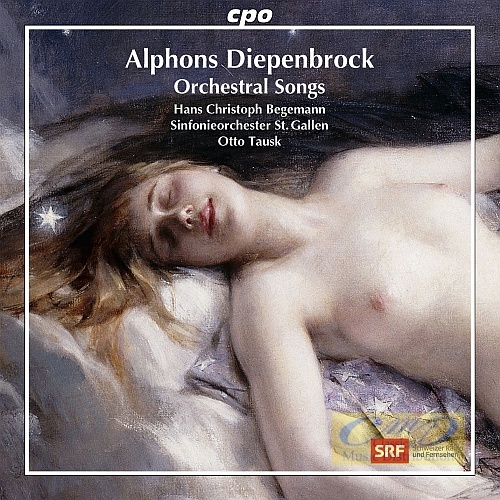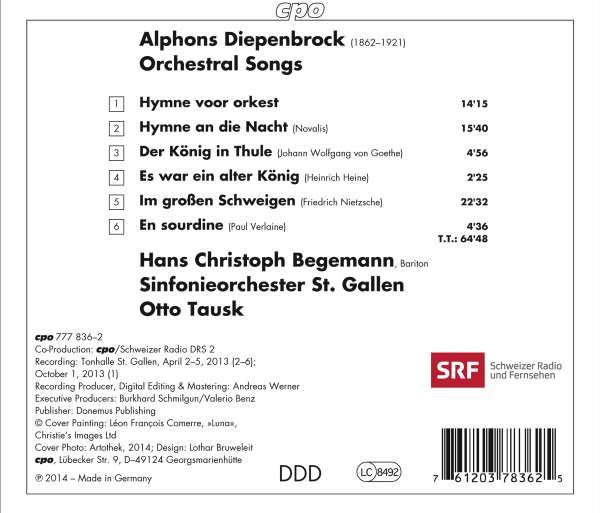
kompozytor
Diepenbrock, Alphons
tytuł
Diepenbrock: Orchestral Songs
wykonawcy
Sinfonieorchester St. Gallen;
Tausk, Otto;
Tausk, Otto;
nr katalogowy
CPO 777 836-2
opis
With its Holland edition cpo has set important revivals in motion. Röntgen, Badings, van Gilse, Andriessen – these are names that one had hardly ever heard of before. The current case is somewhat different: Alphons Diepenbrock – even today – continues to number among the best-known Dutch composers of the turn of the century. The great Gustav Mahler himself found enthusiastic words for this Dutch composer, with whom he was on close friendly terms. Mahler's tone comes to the surface in Diepenbrock's music. With his symphonic songs, however, Diepenbrock created a genre to which Mahler would turn in the Lied von der Erde. Diepenbrock earned a doctorate in classical philology and was a musical autodidact who had schooled himself on the vocal polyphony of the old Netherlandish composers and on Richard Wagner. During World War I Diepenbrock turned to French stylistic means. From all these influences he formed a strong personal style reflected in his some one hundred works. With Hans Christoph Begemann and Otto Tausk, both of whom have offered congenial interpretations of orchestral songs by Hans Pfitzner for cpo (4556218), we have now recorded Diepenbrock's most important baritone songs. »Hymne an die Nacht« after Novalis and the full-length »Im großen Schweigen« after Nietzsche are the program highlights.
nośnik
CD
gatunek
Muzyka klasyczna
producent
CPO
data wydania
18-08-2014
EAN / kod kreskowy
761203783625

(Produkt nie został jeszcze oceniony)
cena 58,00 zł
lubProdukt na zamówienie
Wysyłka ustalana indywidualnie.
Darmowa wysyłka dla zamówień powyżej 300 zł!
Darmowy kurier dla zamówień powyżej 500 zł!
sprawdź koszty wysyłki
























